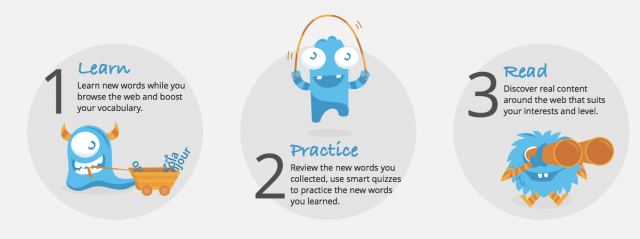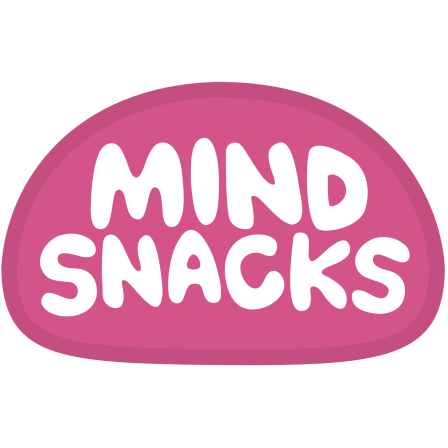Welcome to the forty-third installment of Queer Your Tech with Fun, Autostraddle’s nerdy new tech column. Not everything we cover will be queer per se, but it will be about customizing this awesome technology you’ve got. Having it our way, expressing our appy selves just like we do with our identities. Here we can talk about anything from app recommendations to choosing a wireless printer to web sites you have to favorite to any other fun shit we can do with technology.
Header by Rory Midhani

Learning a language other than the one I natively speak has been one of the most satisfying things I’ve done in my 25 years thus far. It’s also one of the many things in life that’s super satisfying to practice and research – there is a measurable difference when you regularly practice a language other than your own. Like, one day you can’t read this book/newspaper/website and then in a week you can. It’s clear how much progress you’re making. And your tech can super help you here. Sure, we all know about Rosetta Stone, but here are a few more ways you can learn a language at a significantly lower price point.
Duolingo

Languages: Spanish, English, French, German, Portuguese and Italian.
Platforms: web app, iPhone, iPad and Android
Price: Free as the day is long.
We’ve talked about this before, and I have to say I still think it’s the best free thing that exists in the world. And when I say free, by the way, I mean for real free: no ads, no paid content, just language language language. Duolingo helps you practice translating from English into other languages, other languages into English, the actual grammar of a sentence, spelling, listening and (if you’re playing on the mobile devices) speaking. Win your way through levels and unlock lessons by earning coins and translating the internet. If you’re planning on teaching yourself a language, I recommend using this as the base ingredient to all your language learning recipes.
Lingua.ly

Languages: Spanish, English, French, Hebrew and Arabic
Platforms: web app/Chrome extension
Price: Free like boobs without bras.
This new language learning tool sits in the top right corner of Google Chrome as an extension and turns the content on the web into a vocabulary learning tool. Install the plugin and you’re off browsing real text for words you haven’t seen before in the language of your choice. The huge pro here is that it gets you right into the action by reading real world articles on real world issues – you wind up learning words for “protest,” “sexism” and “survival,” words you wouldn’t normally learn in a classroom environment or in a game-driven language learning software. The cons, though – this platform is entirely focused on vocabulary and doesn’t teach you grammar. It also exposes you to slang words and words we make up (eg, “mansplaining”) without being able to define them. Still, super great for what it does. I’d recommend using this in conjunction with another language learning software like Duolingo, or even in conjunction with traditional classroom learning.
Mind Snacks

Languages: Spanish, French, Italian, Portuguese, German, Chinese (Mandarin) and Japanese. They also have Kids’ and SAT English Vocab.
Platforms: Exclusively iOS, but they’re hiring an Android Engineer as we speak, so.
Price: Free-ish, kind of like taking your dog to a fenced-in dog run. The first lesson is free and games are free, but you buy additional lessons. For one language, it’s $4.99 for all lessons. You can also get all lessons for every language/subject ($19.99).
Mind Snacks is ADORABLE. It’s geared toward children, but that doesn’t mean adults can’t use it. Mind Snacks works with listening, spelling, vocabulary and grammar. It also uniquely does synonyms and antonyms as well as visual processing (associating words with pictures). I highly recommend this app if you have little to no exposure to the language you’re trying to learn – it’s great for the ultra-beginner. Plus, like Duolingo, it game-ifys language learning so you don’t feel the learning happening. And as you gain levels, you hatch this cute little creature from an egg, kinda reminiscent of Pokémon.
Busuu

Languages: English, Spanish, German, French, Italian, Portuguese, Russian, Polish, Turkish, Arabic (web app only), Japanese and Chinese.
Platforms: web app, iOS (linked above) and Android (which you can find here).
Price: Free-ish. Maybe as free as you would be writing in your journal if you knew someone was reading it. There are free vocab, reading and writing lessons, but most of the grammar lessons come with a premium subscription (89.99 per year).
I couldn’t possibly do a language post without mentioning Busuu. The learning is less “gamified” and way closer to a traditional curriculum. In fact, the order of things you learn in the first few lessons is exactly what my freshman year French class looked like, and that was the foundation that enabled me to move to France. So. They also boast a huge language selection and the biggest language learning community on the web. While I think the lessons themselves are way less fun than the above competitors, you get something that none of the other solutions on this page offer: your exercises are correct by native speakers. And there’s a bit of a game element – you build your “language garden” as you progress.
So many ways to get your language learning on! Enjoy, queermos. Et bonne chance!








Comments
Ohh, thank you! I immediately had to try lingua.ly and busuu. Kind of disappointed now because I guess I sort of rushed through your text and thought lingua.ly would be able to give me the Arabic translations of words I find on English/German websites, so I could work on my Arabic while I´m just browsing the net. Still, this is going to be useful next time I attempt to find Arabic voices on queer issues! Also, it just occured to me that maybe I can get the effect I originally desired by changing my settins to “I speak Arabic and I´m learning English”… hm, definitely have to try this out! Also eager to see whether busuu will actually get me to practice my Turkish vocab more often. :D
I´d been contemplating asking you whether you´d do a review of menstrual cycle tracker apps, because I failed to come up with a non-pink solution that isn´t designed for “men who want to keep track of their crazy women´s crazy moodswings”, but this is much more useful! :D
(Yes! It works! I can now look up Arabic vocabulary while reading an English text just for fun. Yay!)
RE: menstrual cycle tracker — I’ve been using monthlyinfo.com to track my periods since high school, and I’m 24 now.
i use monthlyinfo.com, too, and have found it quite useful, but it is definitely a very pink-looking website.
Holy relevant to my interests batman!
I moved to Montreal a week ago and just resolved to get better at French because I’m tired of feeling judged by francophone beggars and people asking for directions.
Bienvenue :)
http://www.laits.utexas.edu/fi/ is a great resource for beginning-intermediate French. We used it at my university when I taught as a French TA.
Personally, I’m not a fan of Duolingo. I don’t like their random grab bag-style “lessons”. I need lessons dedicated to specific topics when it comes to learning languages. Right now, I’m teaching myself some basic Spanish through education-portal.com. Their videos are short, easy to understand, and free!
http://education-portal.com/academy/course/spanish.html
Thanks for the link! I think Duolingo is actually really well done for what it tries to do. The sentences aren’t so much random as meant to build on each other so you intuitively learn grammar and conjugation rules many methods would have you study with lots of tables and examples. So for building a grammar base and some vocab without feeling like you’re studying, it’s great. But it’s definitely not the handiest for getting ready to jump into a conversation or real-world situation, so definitely need things like the link you gave to compliment it! Thanks again!
Ha, I’m happy to help! My best friend loves Duolingo, but I’ve always been the table/example type so I know exactly what I’m doing. My language notes (I took a year of German) back in university were the stuff of legend. Hand-written, colour-coded, pages upon pages front and back, tables galore!
Aprender español no es realmente tan dificil, es solo practica como cualquier idioma…just be patient
i started using duolingo a few weeks ago, and i’m digging it like whoa!
i also think it’s pretty great how you can track your own progress and see your friends’, because for competitive people like me, it’s a huge motivator.
I so want to play with all of these things! I love learning languages (currently know French and Irish in addition to English) and would really like to expand my repertoire. :) The internet is such an awesome tool for finding supplementary language materials, too–I definitely recommend watching videos/TV shows/movies in whatever language you’re trying to learn, with or without subtitles. Visual input + actual spoken language = much better listening comprehension!
You read my mind, thank you
Oooh, might have to look at Busuu – my Japanese has gotten super extra rusty, and I don’t really have anyone to practice with anymore.
I’m having a hard time believing that no one has said this yet and/or made this joke:
Thank you Ali for helping us become more cunning linguists.
<3
Have I ever told you that when I get my act together and learn how to brew beer, I want to make one called The Cunning Linguist?
Thanks for this post! I am a huge language-learning nerd, so I will definitely check all of these out.
Another great (free) online resource for language learning is an electronic flashcard program (/phone app) called Anki.
http://ankisrs.net/
It uses an algorithm that checks in with you about how easy/difficult each card is for you, so that it can show you the harder ones again sooner, and save the easier ones for longer and longer spans of time, as they work their way into your long-term memory.
You can use it to create your own flashcards, or download “shared decks” that others have created (not just for language learning). It also allows you to type in a variety of writing systems (and embed images and audio files, although I’ve never used those functions).
I’ve used it to study Japanese, Korean, and Arabic; it’s amazing, and it’s changed my life!
Memrise is another free online flashcard resource, I’ve been using it for German and find it very helpful!
Anki’s great – I don’t know how I would remember my French & Old English vocab without it.
You should also check out memrise.com – for languages (spanish, french, german, portuguese, italian, russian, japanese, chinese, arabic and maybe more, I’m not sure!) and pretty much anything else: like morse code, geography, basic HTML tags, … the list is endless! You can either put together your own list or learn from lists others have created.
You make points by growing your very-own memory-garden :)
Ooh lingua.ly is just what I need! Wish they had Portuguese, but will play with Spanish for now. I love reading the news as a way to practice, but I don’t ever feel I retain the vocab, I just figure it out and go on. This is perfect.
Although I love this article alot, I was a bit disappointed not see Croatian listed there at all.
Does anyone know of any super useful and hopefully free websites etc?
I did a quick search because your request made me laugh, but it seems that http://learn-croatian.com/ is a thing and that typing “Croatian” into the App Store yielded quite a few results. I’d start there.
Also, Rosetta Stone is the bees knees, so if you mean learning Croatian more in depth than you’d need on vacation, you might want to pay for it because it’s not one of the more popular languages like Spanish, French, German, you know? So the variety of free stuff might not be as up to par.
Thanks..I think. :) Biologically its my homeland, I hope to one day spend a lot of time there so learning the language would be useful.
Tell me more about Rosetta Stone. The only people who I have talked to about it hated it, so I am curious to hear a positive opinion!
Alright, considering I really liked Rosetta Stone… here goes! You start off by picking you language and how in depth you want to learn it (you can basically disable/enable modules about writing/speaking based on what you want to learn I picked the most in-depth one which enabled EVERYTHING for me).
Rosetta tries to teach you (or at least they claim) the same way you learned your first language: by building associations between pictures and words and situations. When you speak and plug in a microphone it also tries to correct your pronounciation (I remember getting stuck for days on the french word for “fourteen”; quatorze. Every time I did the numbers from 11-20 I would feel a sense of dread coming up to 14 then BAM failed again.)
There are “levels” of languages which is essentially your proficiency, consider starting further in if you’re experienced. These are split into modules, modules are split into lessons which you pass/fail individually. You can still proceed even if you fail, say, one question within a lesson but my persistance meant I NEEDED TO GET ALL OF THOSE TICKS. Lessons could be a serious of pictures where you type in what they are, or sorting pictures to words. Or simply saying what the pictures are. Or (early on) repeating after the nice French lady.
You get tested repeatedly on what you’ve learned so it really sticks in your memory (they test you over and over, I resisted the temptation to skip..) when you finally complete all the modules in a level, you do the level “exam” which is basically a scenario where you have to react to a “real life” situation. I think the French level 1 test was something about meeting a girl on a tram. It was really strange but I felt like my mind was in a “french place”, I wasn’t trying to translate from English to French when I “answered the questions”, what I was really trying to do was ask the lady how old her brother was (or something like that) only, I wasn’t thinking about that question in it’s English form, I just asked (sorry if that’s a bit jumbled.. it’s complicated!).
I think people’s love/ hate re: Rosetta Stone probably depends on what language they tried to learn. It seems to me it’s better for western languages, because they use a set format/ vocabulary regardless of what language it is. So for example, I tried learning Hindi, and a lot of the vocabulary was sort of culturally irrelevant, or there wasn’t even a Hindi word for it and they just say the English. I had no problem pronouncing the Hindi to its satisfaction, but after 20 minutes of the system being dissatisfied with the way I said “sandwich” I got annoyed.
While I prefer learning a foreign language via pop songs, this list is way more practical and I appreciate it.
I have been using Duolingo for a bit now but super into it the last week or so, so this is very relevant.
In love with duolingo. I wish it offered Arabic or Russian, though.
I love duolingo! I’ve used it for a few months. Too bad i’m rubbish with language, is their an app for fixing that?
Yay languages! Will definitely check out some of these for Spanish :)
Ok, this might make me dust off my french skills. Merci
I really like popupchinese.com for Mandarin Chinese (they also have a Cantonese site, if that’s what you’re into). The podcasts are free, and if you have some cash to spare, they make grammar lessons and vocab sheets to accompany them.
Thank you! Thank you! Thank you!
I´m moving to Italy in 4 days and have been teaching myself Italian all summer.
I started using Duolingo a couple of days ago and it´s helping a lot as well as confirming what I´ve been doing has been worth something.
Wow, I am super impressed with Duolingo!
I’m brushing up on my German skills, so I really appreciated being able to test out of the basic levels.
AND IT ISN’T HETERONORMATIVE! For example, I just had the sentence “Her wife eats” :D
Thanks for the tips – just downloaded DuoLingo to start learning some French and am loving it!
A friend of mine recommended Pleco for Mandarin Chinese.
Now there are more ways to stay up late to learn Spanish! omg.
Nice!
I’m trying to find different options for learning the language for myself and choose the most effective ways. Now I’m testing the Lingopie platform to learn portuguese with brazilian shows . I think that this platform for learning language through movies, TV shows and series, on the contrary, is great for improving your level of the language, learning the most relevant language and understanding it by ear.
I don’t think it’s possible to come up with some new technology to learn a language. Still, there are methods and special practices that allow you to learn languages quickly and efficiently. Personally, I prefer learning through platforms like https://promova.com/ because it’s important to find a reliable teacher who knows how to make the learning process not only effective, but also interesting.